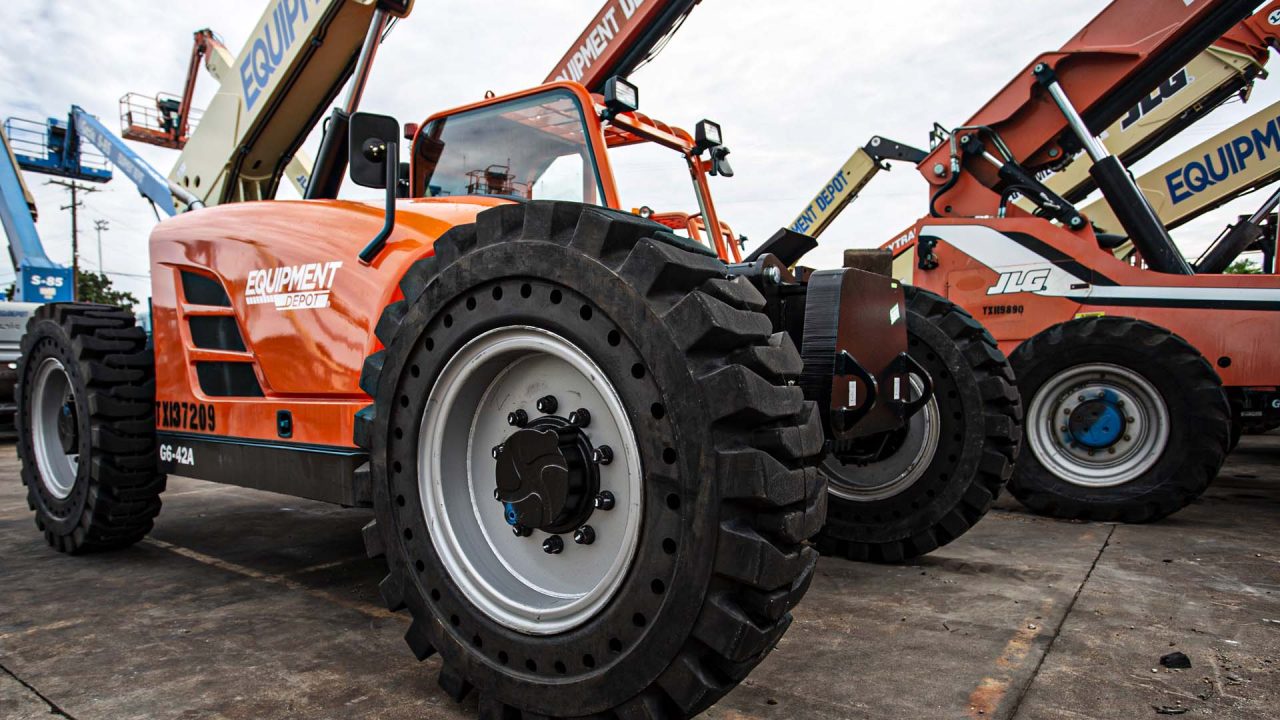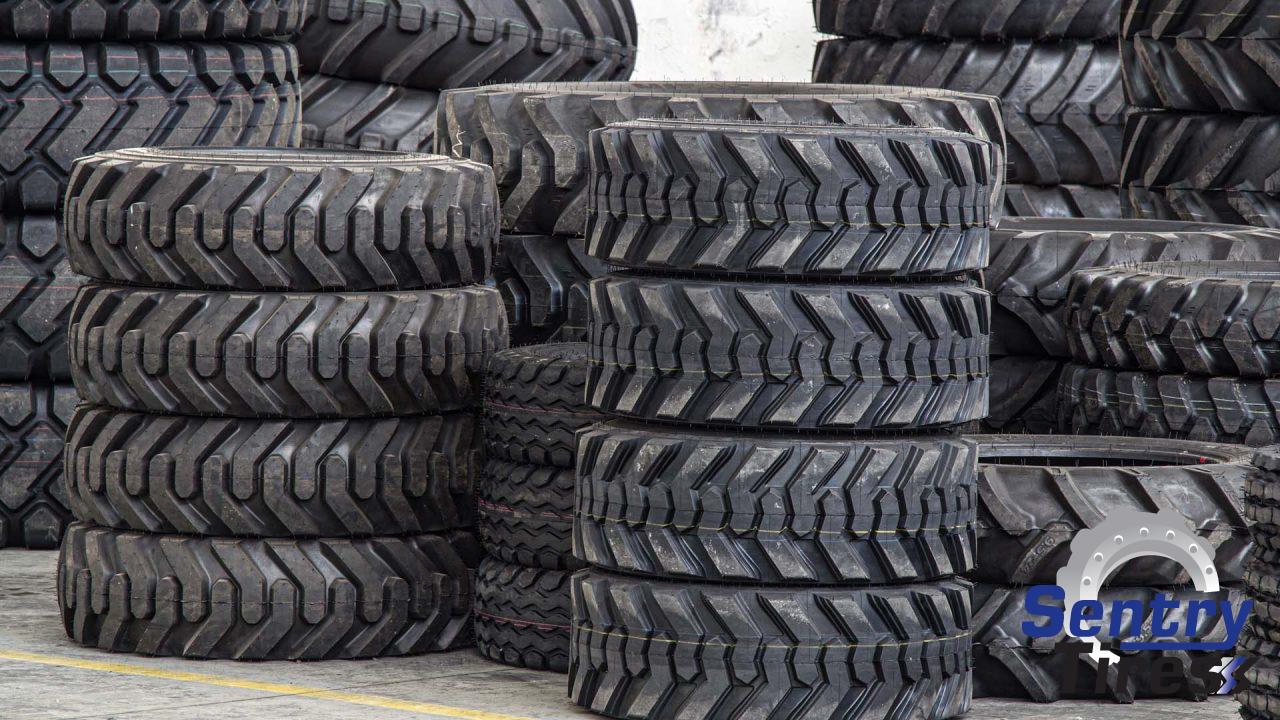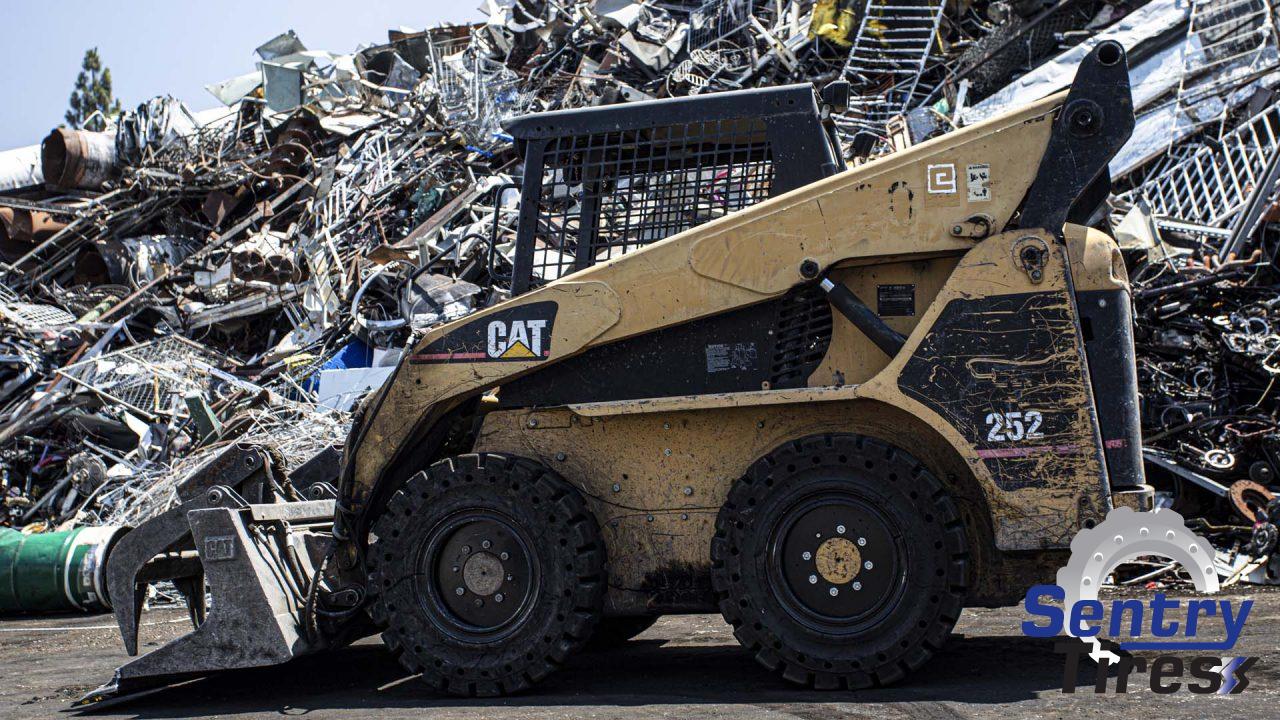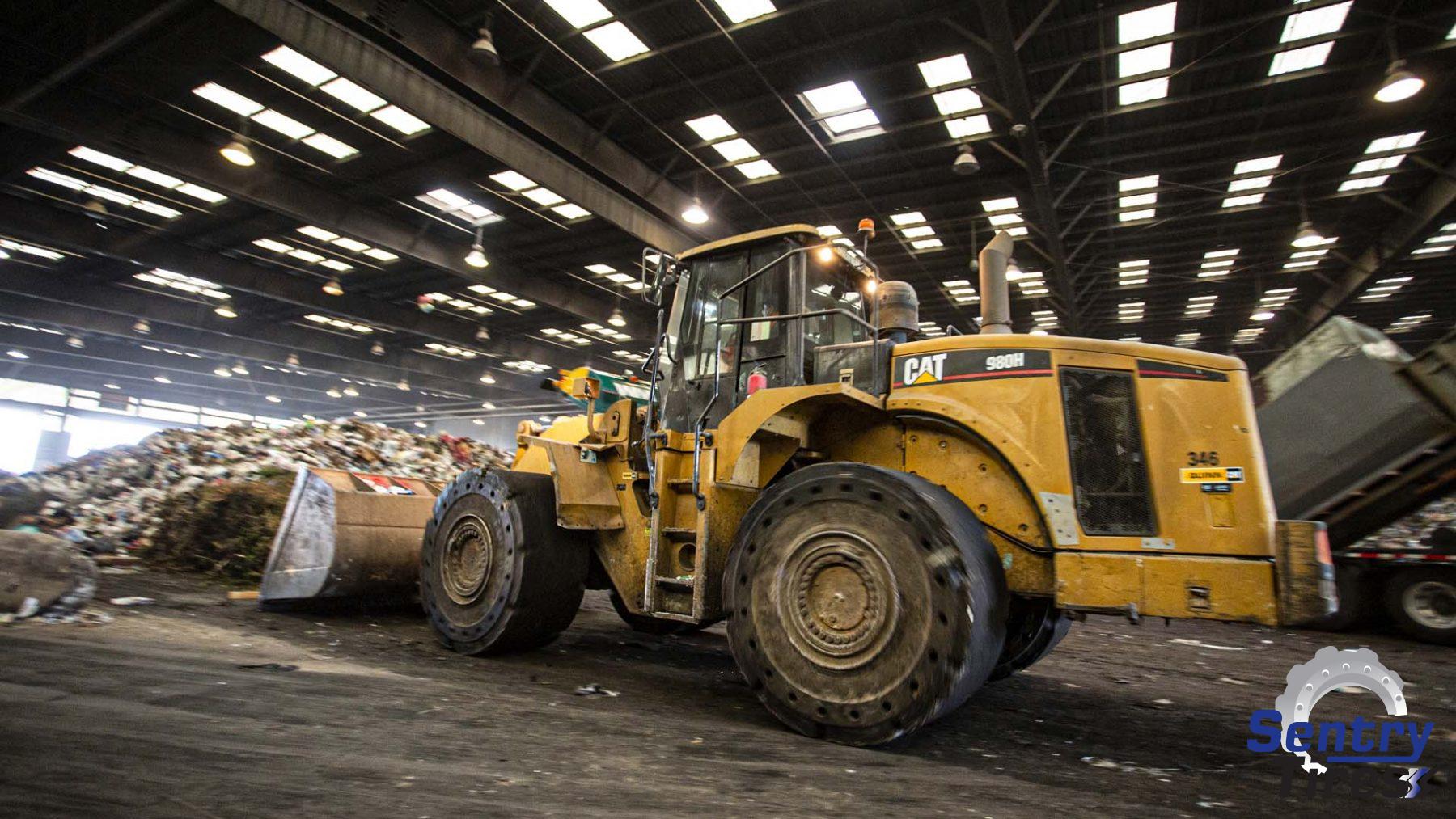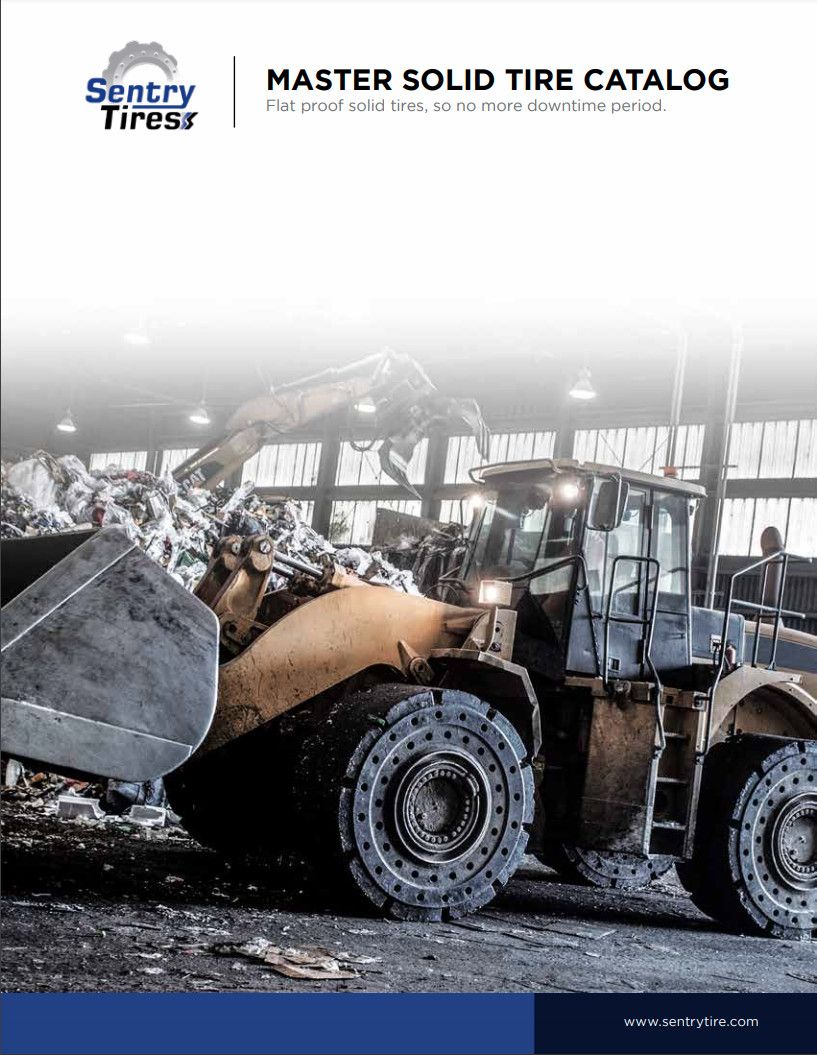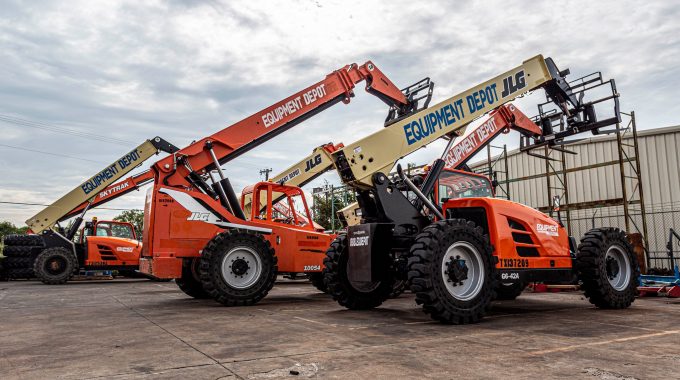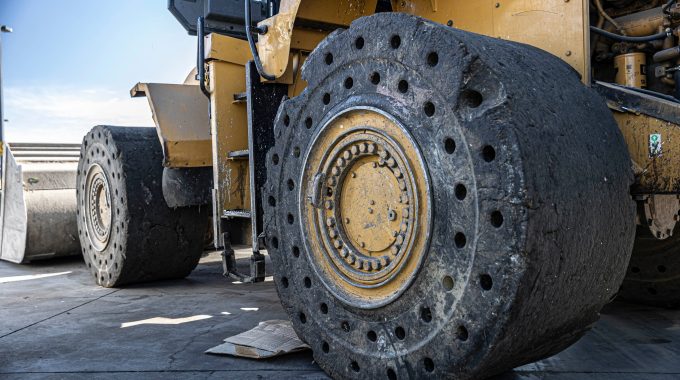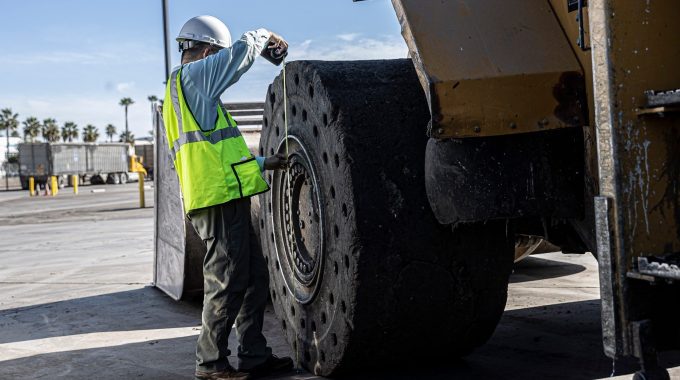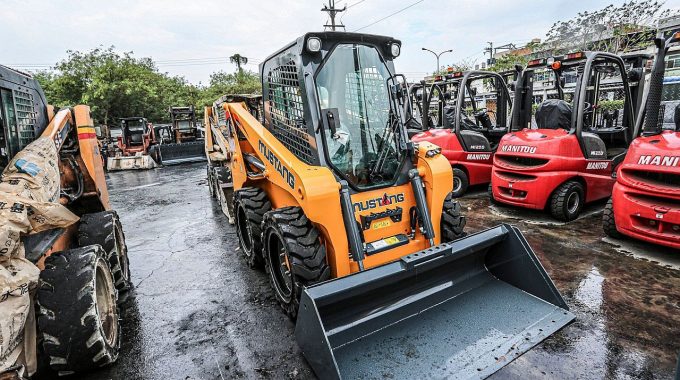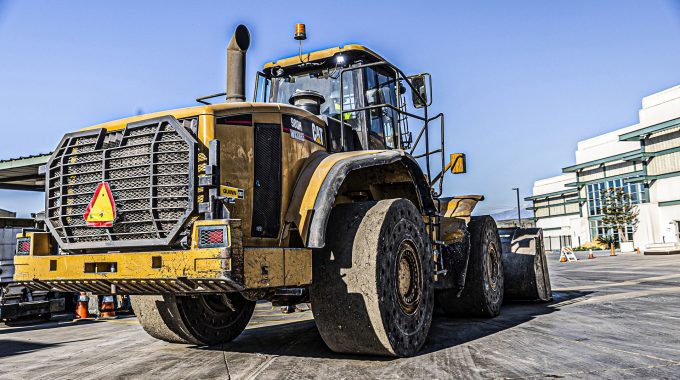
sentry tire
Solid Tire vs. Pneumatic Tire: Why Solid?
A common question that we get from customers is, “Why would I want to replace my brand new, OEM pneumatic tires that came on my machine with solid tires, and is it an upgrade?”
The first question you need to ask yourself is what kind of application you are looking to use your machine in, and you can make your decision based on that answer.
But, let’s talk about some of the major benefits of switching from a Pneumatic to a Solid Tire.
Structurally speaking, it’s obvious that a solid tire would have a longer life span. On average, a solid tire has three to four times more life than a pneumatic tire, but that number can vary depending on the machine type. It’s also not uncommon for the tires to last longer than the actual life of the machine’s operation.
For example, customer’s who switch to solid tires for their telehandlers often see that their solid tires outlast the machine, primarily because telehandler machines travel very little distances.
The most important characteristic of a solid tire is that it is essentially flat-proof. Because it is made of solid rubber, it is incredibly durable and can handle all sorts of challenging conditions. Solid Tires are used in harsh environments in different industries such as waste, steel, concrete, demolition, forestry, and many more.
One of the essential factors of a solid tire is that it prevents significant downtime, which can be costly to a business operation. Time is money, and although our tires have more upfront investment costs, the long-term ownership cost is significantly less than pneumatics, representing a much better return on your investment.
In specific applications, a pneumatic tire may be necessary for the sake of flotation. Still, when considering a solid, there is a significant amount of trust and faith you can have on the tire that it will survive anything you throw at it.
Many of our customers come to us because of the environmental nature of their application — There are high risks of constant flats, rapid wear, and the dreaded downtime of having to replace or repair a pneumatic tire. Even foam-filled tires can be torn or cut in many instances, making a foam fill tire unserviceable and, quite frankly, a huge mess.
A great example of this is a scrap metal yard. Due to the unpredictable nature of a scrap metal yard, an operator can never anticipate what they will come across or run over. Giving the operator the confidence to move about the yard without fear of damaging the equipment leads to higher efficiency levels and lower costs for repair.
Some more examples of industries that may be ideally suited for solid tires are:
- Asphalt paving
- Landscaping
- Port facilities
- Waste recycling

